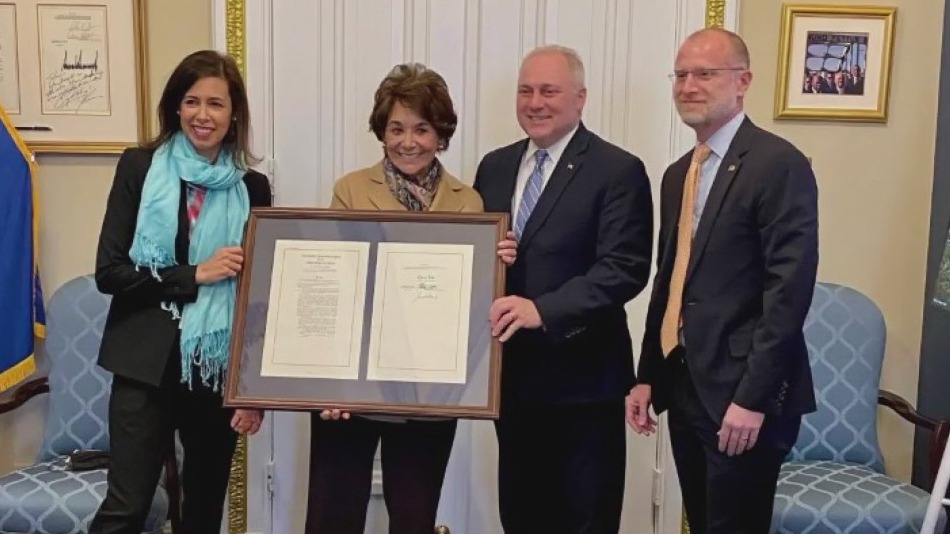FCC adopts bipartisan national security law co-authored by Bay Area Congresswoman Anna Eshoo

Bipartisan push to boost cybersecurity
Congress returns to Washington this week with a final push to finish business before Republicans take control of the House next year. Some celebrated the FCC's adoption of a bipartisan law designed to increase security of consumers' digital devices and data in the U.S.
OAKLAND, Calif. - As Congress prepares to resume business and partisan politics continue to divide the country, there was a rare moment of unity Monday.
Democratic Congresswoman Anna Eshoo of Palo Alto and Republican Congressman Steve Scalise of Louisiana celebrated as their bipartisan national security bill was formally adopted over the holiday weekend by the Federal Communications Commission. The law's goal is to protect the nation's communications infrastructure from foreign interference.
"They voted unanimously to prohibit the importation or sale of communications equipment that's deemed a threat to the national security of the United States," said Rep. Eshoo, "I'm thrilled that I was able to get this over the finish line."
Eshoo says the bipartisan Secure Equipment Act signed into law last year, aims to stop Chinese companies such as Huawei that have links to the Chinese government from infiltrating U.S. communications.
"What I was targeting was Huawei and ZTE, but it's not restricted to those companies," said Eshoo.
"Before it just applied to the federal procurement. Now, basically if I as a private citizen want to buy this equipment or another company wants to buy the equipment they can't do it," said UC Berkeley Political Science professor Vinnie Aggarwal, who studies trade and cybersecurity and serves as director of the Berkeley Asia-Pacific Economic Cooperation Study Center.
Aggarwal says despite the nation's deeply divided domestic politics, there are urgent issues about international economy, trade, and national security which will require cooperation from both parties to address.
"China intervenes in trade, in finance, in investment and pursues an industrial policy," said Aggarwal, "Now, we see Republicans and Demcorats saying this is a worrisome development."
Professor Aggarwal says there are encouraging signs that the parties are willing to cooperate.
"More recently this year, we have the CHIPS act which is a large program to subsidize the manufacturing of semiconductors in the United States," said Aggarwal, "We're concerned that if a semiconductor manufacturer is threatened, it will affect our ability for civilian uses but also more importantly also for military uses."
Congresswoman Eshoo says she hopes there will be more opportunities for politicians to reach across the aisle.
"God help all of us if we can't come together on our national security," said Eshoo, "That should never fall into partisan lanes. It is in the oath of office that we take to protect and defend."
Democratic Senator Ed Markey of Massachusetts and Republican Senator Marco Rubio of Florida also helped pass the Security Equipment Act. Rep. Eshoo says she will continue trying to find common ground as lawmakers transition next year to the new, divided Congress.
Jana Katsuyama is a reporter for KTVU. Email Jana at jana.katsuyama@fox.com and follow her on Twitter @JanaKTVU or Facebook @NewsJana or ktvu.com.

